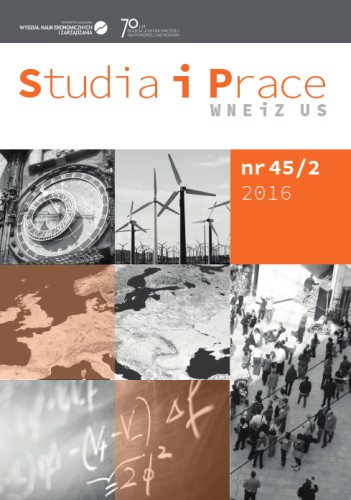LEVEL OF KNOWLEDGE AND ANSWERS GIVEN IN A SURVEY RESEARCH. EXAMPLE OF INSURANCE PREFERENCES SURVEY
LEVEL OF KNOWLEDGE AND ANSWERS GIVEN IN A SURVEY RESEARCH. EXAMPLE OF INSURANCE PREFERENCES SURVEY
Author(s): Maria Forlicz, Tomasz RólczyńskiSubject(s): Economy, Behaviorism, Socio-Economic Research
Published by: Wydawnictwo Naukowe Uniwersytetu Szczecińskiego
Keywords: behavioral finance; survey; experiment; desired value; probability; loss; risk; insurance premium;
Summary/Abstract: Survey (meant as a questionnaire), next to experiment, is one of the most commonly applied in behavioral finance methods of acquiring information about people’s behavior. However, there is some disagreement between scientists what is the real informative value of results obtained from surveys. Some claim they are worthless (e.g. Neill, Cummings, Ganderton, Harrison, McGukin, 1994), others maintain that there are no significant differences between attitudes declared in questionnaires and real field behavior (e.g. Dohmen Falk, Huffman, Sunde, Schupp, Wagner, 2011). In this paper we present results of research on the relationship between students’ level of knowledge (measured by average of grades obtained during studies) and their answers given in a survey which concerned attitude towards risk. A hypothesis that subjects answering questions about insurance preferences having higher level of knowledge give answers closer to results that could be obtained from a mathematical calculation was verified.
Journal: Studia i Prace WNEIZ US
- Issue Year: 2016
- Issue No: 45/2
- Page Range: 211-223
- Page Count: 13
- Language: English

